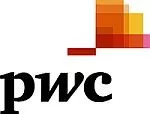Lagos, 6 June, 2016: The time is right for policymakers in Nigeria to reappraise their approach to energy access, according to a new report from PwC. On current trends, two-thirds of the world's population will remain without electricity by 2030, which is the target year to achieve the newly agreed post-2015 UN Sustainable Development Goal of universal access to energy. The PwC report - Electricity beyond the grid: accelerating access to sustainable power for all - says a new approach is needed that better recognises the part that off-grid technology can play.
Pedro Omontuemhen, Partner and lead, Power & Utilities, PwC Nigeria said:
"For the millions of people who don't currently have access to electricity, the old assumption that they will have to wait for grid extensions is being turned on its head by new technological possibilities. There are currently 634 million people without electricity in Africa and in Nigeria we estimate that only one in five people has access to power from the electricity grid. This leaves four in five people living in urban and rural communities having to fend for themselves with makeshift and localised power solutions. Faster progress is needed, and we believe it can be achieved if national energy policies adopt a more comprehensive approach to energy access, embracing the new starting points for energy provided by standalone renewable technology and mini-grids."
Current electrification strategies tend to focus on national grid extension plans. Instead, Olumide Adeosun, Associate Director in the firm's advisory practice said:
"It is critical that Nigerians take steps to understand and embrace the new starting points for energy provided by stand-alone renewable technology and mini-grids as discussed in this report. We believe these solutions provide a viable, bottom-up solution to the patchy availability of electricity in Nigeria.
Some of the enablers, such as a mature mobile payment platforms and data analytics capabilities are already in place. Others will require Investors and communities engaging policy makers to formulate an integrated energy access strategy, then working together in their communities to accelerate momentum in the electrification of Nigeria's urban and semi-rural locations."
The report foresees a major transformation of the electricity sector in the period ahead and sets out five recommendations for accelerating the increase of electrification:
- Develop an integrated energy access plan and map – so that everyone can plan with more certainty for either off-grid or grid extension solutions.
- Create an enabling environment for off-grid development - including clearer criteria for mini-grid development, support for skills and training and more supportive regulation to allow private players to unlock the off-grid market potential.
- Recognise the value of and promote the growth of mobile infrastructure, microloans and payment solutions in supporting energy access - mobile infrastructure is proving crucial in the take-up of standalone home systems, giving providers a low-cost channel for customer relations and an ability to automatically manage non-payment.
- Establish an off-grid innovation and development fund - a highly visible development and innovation fund can play an important part in spurring off-grid growth in each country.
- Have a high-level energy access champion that can drive results – to cut through bottlenecks and monitor results.
Concluding Omontuemhen noted:
"'All or nothing' approaches that focus primarily on the national grid are increasingly out of step to what is now possible in power technology. Advances in technology are rapidly changing the options available beyond the grid. Falling solar technology costs have spurred the growth of standalone home systems and are changing the economics of mini-grid systems. Battery storage technology is fast evolving to the point where it is going to play a significant role in utility-scale solar power storage and is beginning to feature in smaller-scale off-grid solutions. Together with access to mobile technology and mobile payment systems for microloans, a new era has arrived for beyond the grid electrification."
